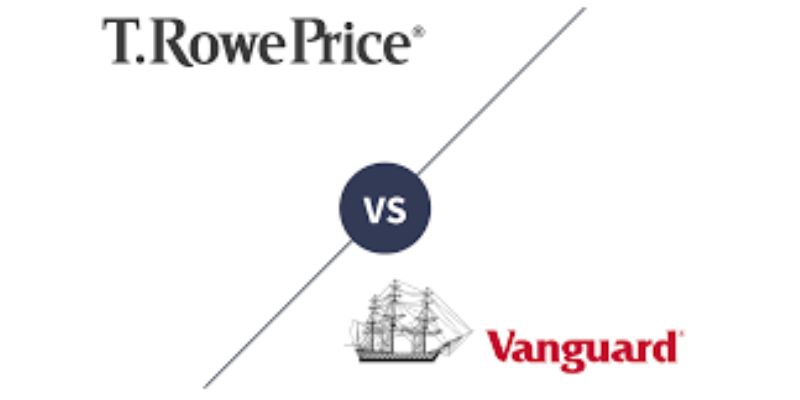What is a Prudent Investment
An acknowledged use of financial resources appropriate for an investor's objectives and goals is referred to as a prudent investment. A prudent investment incorporates the investor's time horizon and risk or return profile.
Fiduciaries, who an investor trusts to select prudent investments, include financial advisers, CPAs, retirement plan sponsors, and attorneys. They should ensure that a decided investment fits within their customer's overall investment portfolio and that costs won't materially reduce the investment's returns.
What is a Prudent Investor Rule

The prudent investor rule, formerly the prudent person rule, refers to a legal code for investment portfolio trustees. It sets rules for legally managing investment portfolios and mandates that fiduciaries behave in the better interest of the beneficiaries. The prudent investor rule significantly impacts the judiciary, the American government, and the financial sector.
The managing investor must consider the distribution of regular income, the requirements of the trust's beneficiaries, and the protection of the trust's assets as per the prudent investor rule. Diversification, taxes and fees, balancing income generation, and capital appreciation are a few of the rules' guiding concepts.
A fiduciary must follow the prudent investor rule while making investment decisions based on the data available at the time because no one can accurately forecast the outcomes of every investment decision. If the trustee follows the prudent investor rule's guidelines, it makes no difference whether the decision is favorable or unfavorable.
Fiduciaries are expected to conduct thorough analyses and come to smart conclusions that align with the needs for portfolio distribution, risk tolerance level, and other aspects related to the trusts they govern. The trust's objectives and those of its beneficiaries should be commensurate with the level and type of investment risk.
History of Prudent Investor Rule

The prudent investor rule originated with rich man John McLean in the early 1800s, though the idea has since been updated. He left funds in a trust after his death to give his wife a passive income. McLean stipulated in her will that the remaining money be split between Massachusetts General Hospital and Harvard College and two philanthropic organizations. But when the donations arrived, they were much less than they had anticipated. They filed a lawsuit against the trustee, citing proof that poor investment decisions had caused the trust's value to decline.
The matter was heard by the Massachusetts Supreme Court when Justice Samuel Putnam wrote the following now-famous passage in 1830:
"All that can be expected of a trustee while investing is that he will act honorably and with good judgment. He must watch how persons of prudence, intelligence, and discretion, and intelligence conduct their affairs, not with an eye towards speculation but rather with an eye towards the long-term use of their money, taking into account both the likely income and the likely security of the money to be invested."
How does Prudent Investment Work
To ensure their clients' investments are accomplishing their stated objectives, good fiduciaries track the outcomes of investments they have chosen for them. According to the Prudent Investor Rule, fiduciaries are required to make wise financial decisions for their customers based on the data at hand.
Follow these three guidelines to maximize the possibility of making a prudent investment:
Diversifying asset classes: By investing across various asset classes, investors can lower the overall instability of their portfolios. As an illustration, Mark's portfolio might include equities, bonds, commodities, cryptocurrencies, and foreign exchange. In a bear market for stocks, Mark's losses might be offset by profits in his cryptocurrency investments. Investors would be wise to dedicate less of their investments too risky assets, such as commodities and small-cap stocks.
Rebalancing: Consistent portfolio rebalancing is a requirement of prudent investing. For instance, it would be wise to sell some of the excess returns and buy other asset classes that seem to be temporarily out of favor if the stock percentage of Jennifer's portfolio rose from 50% to 75% following a year of constant profits.
Minimizing fees and taxes: Prudent investment helps lowering commissions, taxes, and fees. No one likes paying taxes. By investing through an IRA, you can reinvest profits tax-free. Remember that equities held for a year are subject to a lower tax rate compared to short-term purchases if you use a taxable account. ETFs, or exchange-traded funds, let investors buy a portfolio of chosen equities without paying a fee on each trade.
Prudent Investor Rule Example
For example, Henry, a 70-year-old investor, has trusted his wealth to a financial advisor who assists him in identifying the ideal investment options. The trustee must comply with the prudent investor rule and make wise decisions depending on Henry's investment goals, risk tolerance, and requirements. The trustee, for example, would not put Henry's money into the penny stock or lottery, both of which are considered risky investments. Instead, the trustee must invest Henry's prudent investment funds as if it were his own, adhering to the prudent investor rule standards even if the outcomes fail to meet the investment goals.

By Kelly Walker : Jun 30, 2023
Wells Fargo Business Secured Credit Card Review
Find out wells fargo business secured credit card reviews and ratings to know if it is worth it and whether you should apply for a wells fargo business secured credit card
Read More
17282

By Aldrich Acheson : Sep 05, 2024
Picking the Best Bank for You: A Practical Approach to Making the Right Choice
How to choose the best bank for your needs in 2024 by evaluating key factors like fees, customer service, digital tools, and more. Make informed banking choices
Read More
13987

By Kelly Walker : Jun 28, 2023
Best Students Credit Cards Of 2023: A Detailed Guide
Get the most out of your college experience by choosing the best student credit cards. We compare and review the top picks so you can make an informed decision.
Read More
7854

By Rick Novak : Mar 30, 2023
Best Ways to Learn Technical Analysis
Improve your market analysis skills and stay ahead with these proven strategies for mastering technical analysis. Quickly learn to identify key trends and make better decisions in any market.
Read More
18256

By Rick Novak : Feb 22, 2023
Taxation of Mutual Funds
You are required to pay taxes when you hold mutual fund shares and when you sell your shares. The primary sources of mutual funds taxes are capital gains (when you sell shares in the fund) and dividends (when you own mutual funds) when you keep funds in taxable accounts.
Read More
3416

By Kelly Walker : Jul 28, 2023
How To Use Your Roth IRA as an Emergency Fund
Struggling to make ends meet during unexpected financial burdens? Learn how to use your Roth IRA as an emergency fund and secure your future.
Read More
2322

By Rick Novak : Feb 22, 2023
Stocks then and now
Today, investing in the stock market and having an online brokerage account or a retirement plan is not uncommon. However, markets were less liquid, and stock trading was less accessible in the past. In this article, we take a quick look at the stock market conditions from the 1950s to the 1970s from an investors' perspective.
Read More
9668

By Kelly Walker : Apr 19, 2023
How to Check Points on your Driving License?
This article will discuss the basics of driver's license points and what you need to know to avoid accumulating points on your driving license.
Read More
18662

By Kelly Walker : Jun 03, 2023
T. Rowe Price vs. Vanguard
Choosing a financial company to manage your investments can be intimidating, but this blog post will help you compare the pros and cons of T. Rowe Price vs Vanguard to make the best decision for your investment goals.
Read More
15174

By Kelly Walker : Jun 02, 2023
What Is a Virtual Credit Card Number?
Get the definitive guide on virtual credit card numbers and explore why it may be the right choice for your business or personal finances. Find out how these secure payment methods work, what they can offer you, and how you can make the most of them.
Read More
10593

By Rick Novak : Apr 26, 2023
How Are Fees for ETFs Deducted?
Due to their cheap fees, diversification, and convenience of trading, exchange-traded funds (ETFs) have gained popularity among investors. Many shareholders, however, wonder how ETF fees are removed from their investments.
Read More
4086

By Kelly Walker : Mar 27, 2023
Best Health Insurance for Self-Employed
Confused about which health insurance plan to pick? Don't worry. We have you covered! Learn the ins and outs of healthcare coverage specifically tailored to self-employed individuals.
Read More
15890